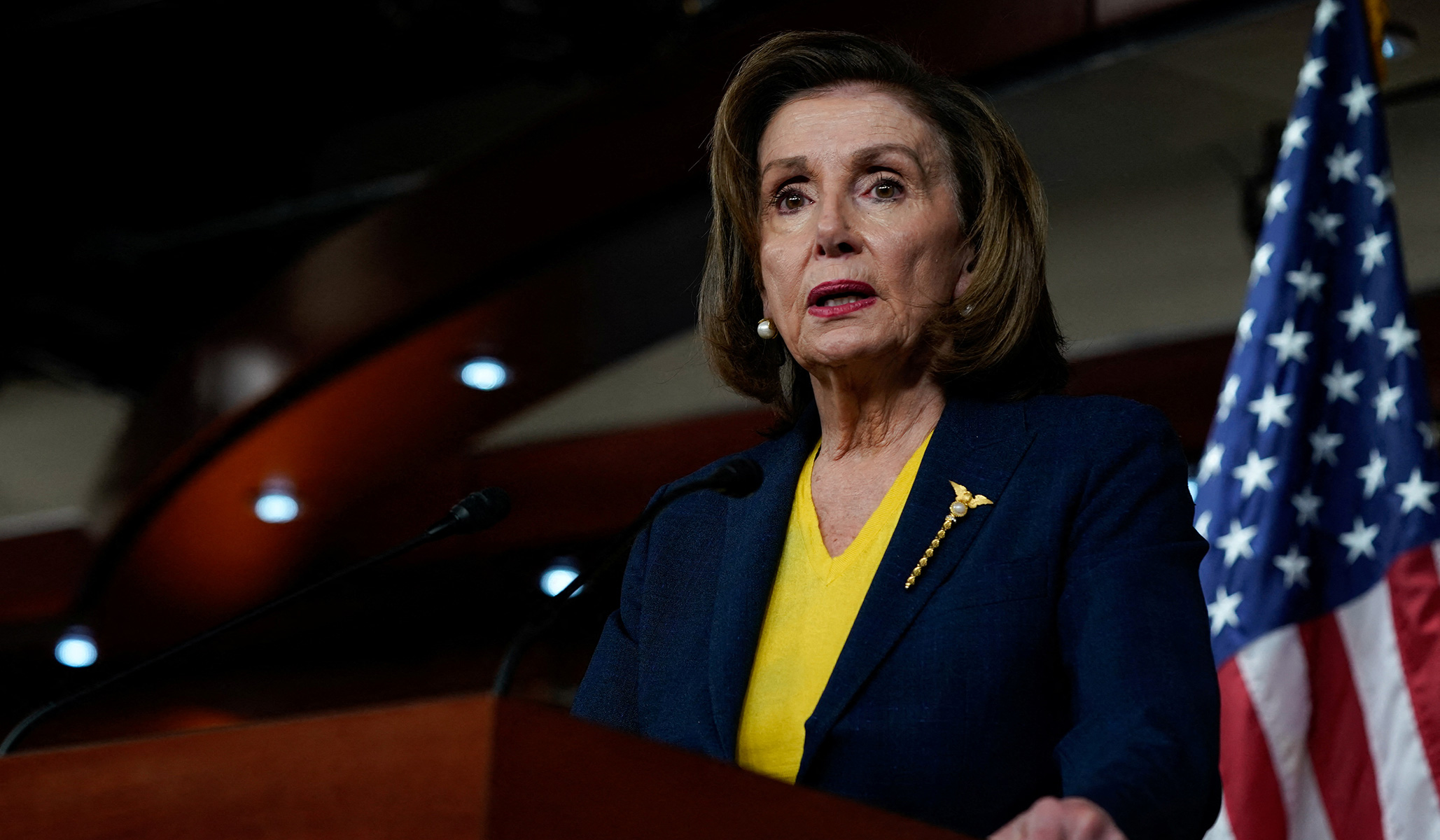Yesterday on ABC’s This Week, George Stephanopoulos asked House speaker Nancy Pelosi about inflation. Despite Build Back Better’s being last year’s news, Pelosi still believes that passing it would help bring inflation down.
After talking about the COMPETES Act that the House passed last week (read Jimmy Quinn on the problems with that piece of legislation), here’s what she said:
Secondly, it’s important to note this about the BBB, the BBB is a deficit reduction bill. It’s a bill that — some people say when you increase the national debt, you increase inflation. Seventeen Nobel laureates wrote that the — the way the BBB was written with long-term investments and increasing the capacity of people to participate in our success is noninflationary.
In addition to that, the tax — the Joint Tax Committee, which is the imprimatur on all these issues, the Joint Tax Committee says that BBB will reduce the national debt by $100 billion in the first 10 years and $1 trillion in the second 10 years. So what we are doing is, what are the three effects? More people going to work. That’s a good thing. More product to lower the cost, you know, the supply side of — the supply and more supply, lower costs.
And then third, and — third, the terms of not increasing the national debt.
Let’s put aside the fact that BBB is only deficit-reducing if you take every budget gimmick the Democrats put in it at face value and believe their claims about the tax gap, and the true debt added by making BBB permanent would be $3 trillion over the next ten years. And let’s put aside that there is no report from the Joint Committee on Taxation that says BBB would reduce the debt by $1 trillion 20 years from now. And let’s put aside the fact that there is no BBB to speak of at the moment because Joe Manchin has repeatedly said he won’t support anything resembling what the House passed last year.
Pelosi is trying to have it both ways on the debt and inflation. If she’s concerned about government debt creating inflationary pressure, why did she champion the American Rescue Plan? That piece of legislation, as Brian Riedl noted in December, will add $1.9 trillion to the debt and even led left-leaning economists to warn of its inflationary impact. And that was passed without the veneer of being “paid for” — it was loud-and-proud deficit spending.
So which is it? If Pelosi believes that reducing the debt would help bring inflation down, then her support for the American Rescue Plan (which does the opposite) seems misplaced. If Pelosi believes the American Rescue Plan was a good idea and is not contributing to inflation, then it shouldn’t matter whether Build Back Better is debt-reducing.
The truth is that Build Back Better probably wouldn’t have done much for inflation at all. The spending in the package would have been spread out over a very long time and would have had little impact on the price level overall. It was a bad piece of legislation for a whole host of other ideas, not because it was inflationary.
Pelosi’s strange beliefs on inflation don’t stop with inconsistency, though. She also seems to believe that low unemployment leads to higher inflation. She said, “And part of the consequences of all of that investment, the infrastructure bill and the rest, is that more people have jobs and, therefore, inflation goes up.”
First, the infrastructure bill is hardly off the ground. Some of the money from it will eventually go to workers who build the projects it funds over the next ten years, but we wouldn’t see the effects of that yet. Second, as Matt Weidinger of AEI wrote, the American Rescue Plan didn’t create a single job. Actual job growth last year came in slightly below what the CBO projected would have happened if the American Rescue Plan had never been passed.
Currently, we do have low unemployment and higher-than-normal inflation, but there’s no reason to infer causality from that. During the early to mid ’60s and the late ’90s, the American economy saw low unemployment and low inflation simultaneously. More recently, throughout the entire recovery from the Great Recession and continuing until the Covid recession, unemployment declined gradually, and inflation didn’t go up. Unemployment going down does not automatically cause inflation to rise.
On both the facts and the logic, Pelosi’s statements on inflation yesterday don’t hold up. Other than that, though, they were fine.
